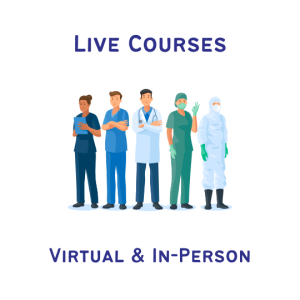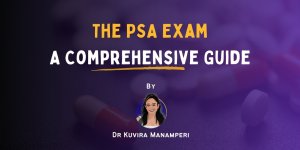
Published June 10, 2024 | Updated June 11, 2024
By Haseeb Hamid
Haseeb is a doctor and the founder of MedSnapp – the world’s first gamified medical education platform for medical students. Motivated by a passion for improving medical education and driving innovation, he created MedSnapp to revolutionise and enhance the way medical students learn medicine.
As doctors in the ever evolving and increasingly competitive medical field, we recognise that professional growth is a constant requirement.
A key avenue for such growth is further education, and for those with a flair for teaching and mentoring a Postgraduate Certificate in Medical Education (PGCert in MedEd) offers an enriching pathway.
This ultimate guide will provide you with all the information you need to make an informed decision about whether a PGCert in Medical Education is right for you.

Haseeb is an NHS junior doctor and the founder of MedSnapp. He obtained a PGCert in Medical Education from the University of Dundee in 2023.
Motivated by a passion for improving medical education and driving innovation, he created MedSnapp to revolutionise and enhance the way medical students learn medicine.

MedSnapp is the world’s first gamified medical education platform for medical students. Earn points and badges, level up, move up the leaderboard and use your medical knowledge and medical inventory to treat your ill patients.
Check out MedSnapp here: medsnapp.com.
What is a PGCert in Medical Education?
A PGCert in Medical Education is a specialised postgraduate qualification designed for healthcare professionals who wish to enhance their teaching skills and knowledge in the field of medical education.
Unlike its in-depth counterparts like the PGDip or MSc in Medical Education, the PGCert focuses on providing a foundational understanding of teaching methodologies pertinent to medical education, without the longer commitment.
It is an excellent option for doctors who are passionate about educating the next generation of medics and looking to improve their speciality applications or pursue an academic career in the future.

Why Should I Do One?
There are several compelling reasons to pursue a PGCert in Medical Education.
Firstly, it equips you with the necessary skills and strategies to become an effective medical educator. Whether you aspire to teach medical students, junior doctors or fellow healthcare professionals, this qualification will provide you with the pedagogical tools required for success.
Additionally, a PGCert in Medical Education enhances your career prospects. Competitive specialities and academic posts value educators who have dedicated time and effort to improve their teaching abilities.
This qualification demonstrates your commitment to medical education and can open doors to numerous opportunities further down the line.
Here’s a few specific benefits:
When’s the Best Time to Do it?
The ideal time to pursue a PGCert in Medical Education depends on your personal circumstances and career goals.
Some doctors embark on this journey early during their foundation years, alongside their clinical commitments. This allows them to gain extra teaching points for competitive specialty applications which is advantageous.
Some may complete the PGCert during a Clinical Teaching Fellow year in which this qualification is normally funded by the NHS trust as part of their post.
Others choose to pursue the qualification later on, as it allows them to better contextualise the knowledge and skills they acquire.
Ultimately, it is important to assess your own readiness and determine what works best for you. Finding the “right time” depends on individual circumstances – it could be the flexible F3 year, or part-time alongside training.
The key is to consider when you can fully engage with the course content and commitment.
Choosing a PGCert Course
When selecting a PGCert in Medical Education programme, certain factors should be considered to ensure you make the right choice.
Here are some aspects to consider:
The Institution
Accreditation and Recognition
Ensure the PGCert you choose is accredited by a reputable institution.
This not only assures the quality of education but also ensures that your certification will be recognised and valued during future employment opportunities.
Read reviews and seek opinions from current or past students to gain insights into the programme’s reputation and quality.

Faculty Excellence
The impact and value of the course will likely be influenced by the calibre of its faculty.
Seek out programmes where the faculty comprises respected and experienced medical educators. Their insights and mentorship can be invaluable in guiding your learning journey.
Curriculum Content
Aligning the course content with your interests and career goals is crucial.
Whether your focus is on educational technology, curriculum development or assessment methods, ensure the programme offers modules that cater to your aspirations.
Delivery Method
Explore whether the course is delivered online, face-to-face, or through a blended approach, considering your learning preferences and accessibility.
Online or Face-to-Face?
One crucial decision to make when pursuing a PGCert in Medical Education is the mode of study: online or face-to-face.
Both options have their advantages and it’s important to select the one that suits your learning style, schedule and accessibility.
Online learning provides flexibility, allowing you to study from anywhere at your own pace. It is especially beneficial if you have professional or personal commitments that make attending regular face-to-face classes challenging.
Online courses often include interactive discussions, multimedia resources, and virtual collaborations to facilitate a dynamic learning experience.
Face-to-face learning, on the other hand, offers a more immersive and interactive experience. It allows for direct interaction with instructors and fellow students, providing opportunities for in-depth discussions and networking.
This option may be preferable if you thrive in a classroom environment and value immediate feedback.
Part-time or Full-time?
Deciding whether to pursue a PGCert in Medical Education on a part-time or full-time basis depends on your availability and commitment level.
Part-time study offers flexibility, allowing you to balance your current professional responsibilities while gradually progressing through the course. This option suits individuals who want to maintain their clinical work or have other personal commitments.
On the other hand, undertaking the qualification full-time allows for an immersive educational experience, enabling you to complete the programme more quickly. This option is ideal if you can dedicate a significant portion of your time solely to the course.
What is the Application Process?
Each institution may have its specific application process for a PGCert in Medical Education.
However, here are some common steps you can expect:
It is essential to carefully follow the instructions provided by each institution during the application process to increase your chances of acceptance.
Requirements
he specific requirements for a PGCert in Medical Education can vary between institutions.
However, some common prerequisites include:
- A recognised medical or healthcare-related degree
- Proof of clinical experience
- Proficiency in the English language
- Strong written and oral communication skills
Ensure you thoroughly review and meet the requirements set by the institution you wish to apply to.
Fees
The fees for studying a Postgraduate Certificate (PGCert) can vary quite a bit depending on factors like the institution, location, and the specific programme you’re interested in. However, here’s a general range to give you an idea:
The Course Day to Day
A typical day in a PGCert in Medical Education will vary depending on the institution and course structure. However, you can expect a blend of theoretical knowledge and practical application.
Your days may involve:
There will likely be a longer essay or dissertation at the end of each module which will be a large part of your assessment for the course.
What You’ll Learn
During a PGCert in Medical Education, you will gain a comprehensive understanding of various aspects related to medical education.
Some key topics covered include:
These areas of study will provide you with a solid foundation to excel as a medical educator.
How Much Time Does it Take Up?
The time commitment required for a PGCert in Medical Education may vary depending on the institution and study mode.
As a general guide, a part-time PGCert often take around 1 to 2 years to complete, while full-time programmes can be completed in approximately 6 to 12 months.
Weekly time commitment varies but expect between 5-15 hours of study per week.
While balancing your clinical or professional commitments, it is crucial to allocate sufficient time for coursework, assignments and revision. It is recommended to create a realistic study schedule to ensure you can manage all your responsibilities effectively.
Career Opportunities
A PGCert in Medical Education offers a wide range of career opportunities and avenues for advancement in medical education.
As a qualified medical educator, you will have:
The demand for skilled medical educators is ever-growing, providing ample career opportunities and potential for growth.
You may wish to use your PGCert in Medical Education to apply for a PGDip or Masters in Medical Education to continue your academic progression in medical education.
Conclusion
A PGCert in Medical Education is a valuable qualification for healthcare professionals aspiring to become proficient medical educators. It provides you with the necessary skills, knowledge and strategies to excel in teaching and contribute significantly to medical education.
Consider your personal circumstances, career goals and preferences when choosing a Medical Education PGCert that suits your needs.
Ensure the course aligns with your aspirations, allows flexibility, and provides opportunities for professional growth in line with your career aspirations.
A PGCert in Medical Education will not only enhance your teaching abilities but also open the doors to exciting career opportunities and advancement in the field of medical education.

MedSnapp is the world’s first gamified medical education platform for medical students. Earn points and badges, level up, move up the leaderboard and use your medical knowledge and medical inventory to treat your ill patients.
Check out MedSnapp here: medsnapp.com.












